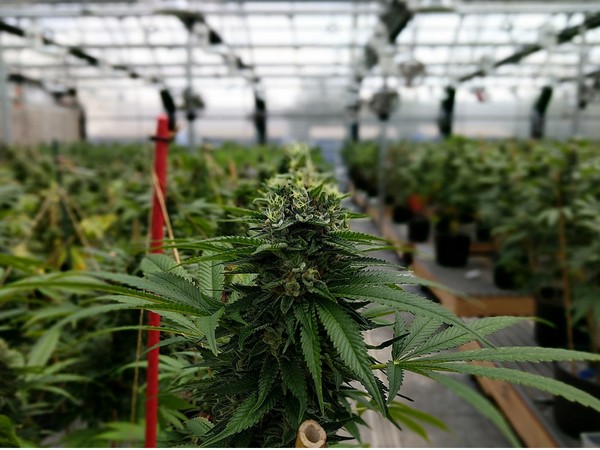Health News Roundup: Colombia's cannabis industry in crisis over regulatory, political hurdles; Exclusive-India probe into bribery claim in toxic syrup tests nears completion and more
Selling or supplying cannabis for recreational use would remain a criminal offence. US FDA approves Ionis-AstraZeneca's nerve disease drug The U.S. Food and Drug Administration (FDA) on Thursday approved Ionis Pharmaceuticals and partner AstraZeneca's drug to treat nerve damage caused by a life-shortening rare disease.

Following is a summary of current health news briefs.
Colombia's cannabis industry in crisis over regulatory, political hurdles
More than 17 acres of land owned by a Colombian-Canadian company near Bogota were once meant to grow 25 varieties of cannabis, but over the past year weeds have overtaken greenhouses and 200 of its 218 employees have been fired. The company is a victim of long-running problems for Colombia's legal marijuana industry, which attracted huge investment after cannabis was legalized for medicinal use in 2017. At the time, Colombia was one of the first countries in Latin America to pass such legislation and held out the promise of legalizing marijuana sales for recreational use next.
Jazz Pharmaceuticals' PTSD drug fails in mid-stage trial
Jazz Pharmaceuticals said on Thursday its post-traumatic stress disorder (PTSD) drug failed to meet the main goal in a mid-stage study. Shares of the company fell as much as 4% in after-market trading.
Clene says FDA finds ALS drug data not enough for accelerated nod
Clene said on Thursday data on its therapy to treat a type of neurological disease did not meet the U.S. drug regulator's target for accelerated approval. Shares of the biotech company fell 35.9% to 33 cents before the bell.
Exclusive-India probe into bribery claim in toxic syrup tests nears completion
India is close to finishing an investigation into a "comprehensive and exhaustive" complaint that a state drug regulator, in return for a bribe, helped switch samples of cough syrups linked to the deaths of children in Gambia before the samples were tested in India, the investigator told Reuters. While the World Health Organization (WHO) linked the syrups made by India's Maiden Pharmaceuticals to the deaths of 70 children in the African country last year, India's government says tests at an Indian government laboratory showed the syrups were not toxic. Maiden has said it had not "done anything wrong".
Ukrainian lawmakers back legalisation of medical cannabis
Ukrainian lawmakers voted to legalise the medical use of cannabis on Thursday after activists and supporters called for the step to treat millions of people including soldiers wounded in the war with Russia. The bill was backed by 248 lawmakers, senior lawmaker Yaroslav Zhelezniak wrote on Telegram messenger. Selling or supplying cannabis for recreational use would remain a criminal offence.
US FDA approves Ionis-AstraZeneca's nerve disease drug
The U.S. Food and Drug Administration (FDA) on Thursday approved Ionis Pharmaceuticals and partner AstraZeneca's drug to treat nerve damage caused by a life-shortening rare disease. The drug, branded as Wainua, is approved for patients with polyneuropathy, or nerve damage caused by hereditary transthyretin amyloidosis (ATTR-PN), which affects an estimated 40,000 patients globally.
US FDA warns about counterfeit versions of Novo's diabetes drug Ozempic
The U.S. Food and Drug Administration on Thursday warned consumers not to use counterfeit versions of Novo Nordisk's diabetes drug Ozempic that have been found in the country's drug supply chain. The health regulator said it will continue to investigate counterfeit Ozempic 1 milligram injections and has seized thousands of units, but flagged that some may still be available for purchase.
US FDA declines to approve Merck's chronic cough drug
The U.S. Food and Drug Administration (FDA) declined to approve Merck's drug for chronic cough, the company said on Wednesday, marking the second rejection in less than two years. The health regulator concluded the company's application for the drug, gefapixant, did not meet substantial evidence of effectiveness for treating refractory chronic cough and unexplained chronic cough.
Bird flu set to spread in Antarctic causing huge damage, report says
Bird flu is likely to spread further in the Antarctic region, causing immense damage to wildlife, according to experts on the highly contagious disease that has killed hundreds of millions of birds worldwide in recent years. The spread of highly pathogenic avian influenza (HPAI), commonly called bird flu, to the remote southern region has raised concerns for isolated populations of species including penguins and seals that have never been exposed to the virus.
Sanofi to end cancer research programme evaluating tusamitamab ravtansine
French healthcare company Sanofi on Thursday said it was ending a programme evaluating tusamitamab ravtansine related to the treatment of types of lung cancer.
(With inputs from agencies.)










